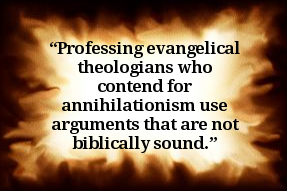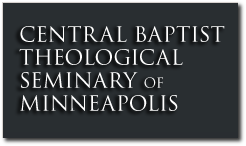Now, About Those Differences, Part Fifteen
 The entire “Now About Those Differences” series is available here.
The entire “Now About Those Differences” series is available here.
To Bauder—a Surrejoinder
Kevin,
Even granting that there is no real difference between us, we have not yet finished with this topic. To this point you have emphasized the importance and the fundamental nature of the gospel. You have also indicated that Christians cannot stop with the gospel alone but must move on to other aspects of the faith-once-delivered. Well and good. If we end the conversation here, however, we risk leaving the impression that the rest of the Christian faith is an entirely separate thing from the gospel.
To anticipate an objection, I certainly agree that Christianity includes something besides the gospel. If we make Christianity equal to the gospel alone, then we are likely to fall into one of two errors. The first is to depreciate everything in the faith that does not fit our definition of the gospel. The second is to expand our definition of the gospel to include other forms of Christian belief and activity.
The first error is committed by those who wish to limit biblical inerrancy to the Bible’s saving message. Doing so allows them (as they see it) to affirm inerrancy while also affirming that the Bible makes mistakes in matters of science and history. Since science and history are supposedly not part of the Bible’s saving message, they do not count against inerrancy.
The second error is committed by varieties of people who wish to “front-load” the gospel with their pet doctrines and theories. An example is those folks who insist that we do not have God’s Word unless we have all of God’s words, and that we have all of God’s words only in their particular version of the Bible. At the opposite end of the theological spectrum, representatives of the emergent church make a similar mistake when they try to include social, psychological, or environmental concerns as part of the gospel.
Some doctrines and practices are essential to the gospel. Others are not. Error in the essentials constitutes apostasy. Error over non-essentials does not. If we fail to maintain this distinction, we will end up charging with heresy anyone who disagrees with the details of our doctrine or practice. Such a charge is clearly not warranted: a person who holds the wrong view of the sons of God in Genesis 6 is not an apostate.
 Reprinted with permission from Voice, Sept./Oct, 2001. By Dr. James R. Mook.
Reprinted with permission from Voice, Sept./Oct, 2001. By Dr. James R. Mook. Republished with permission (and unedited) from
Republished with permission (and unedited) from 
Discussion